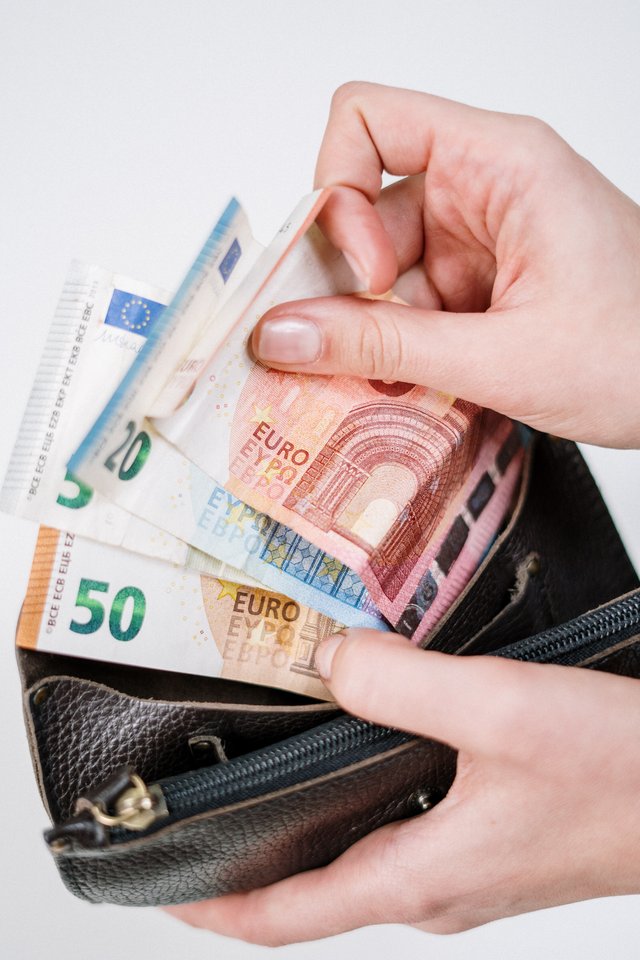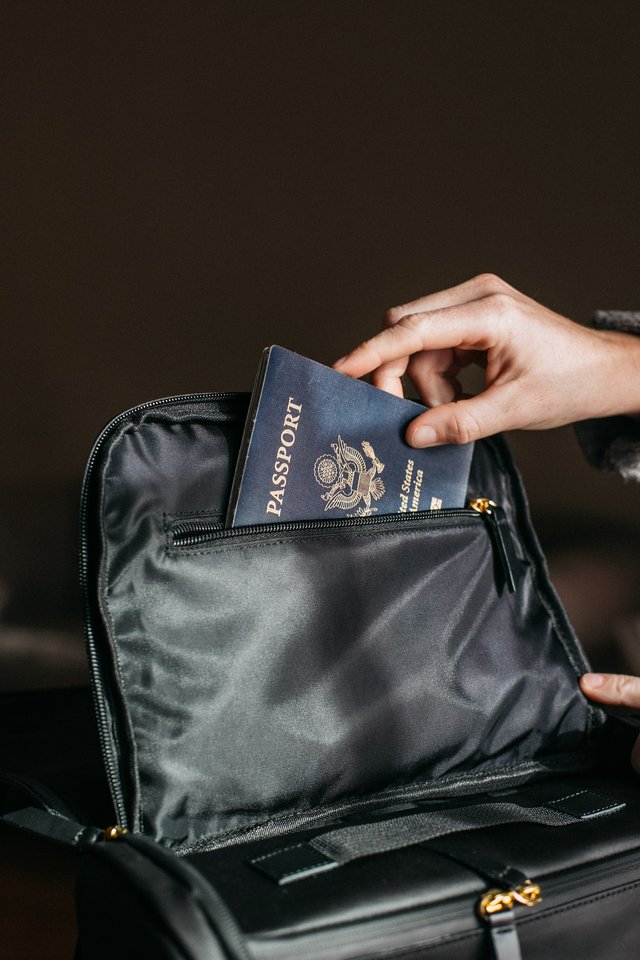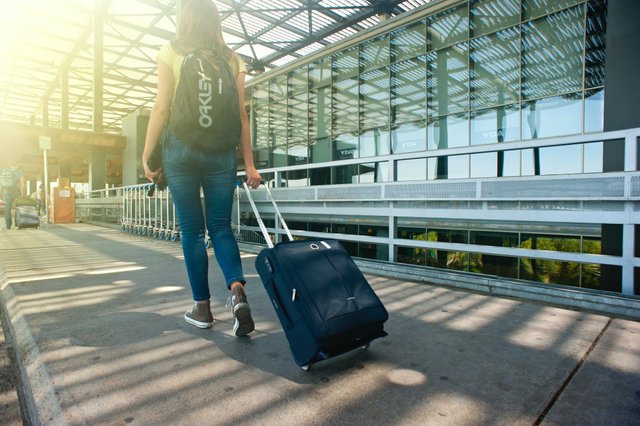HAVE you ever dreamed about distant horizons and wondered what the rest of the world is like? Would you like to see the awe-inspiring Grand Canyon, or the grandeur of the snowy Swiss Alps?
Perhaps places full of reminders of ancient civilizations would fascinate you, such as the ruins of the Parthenon in Athens or the almost endless catacombs in Rome. These can make the past come alive.

The present is exciting too. There is famed Paris with its Eiffel Tower and Champs Élysées, or Hong Kong with its colorful streets and shops. You could gaze at a koala bear in Australia, or have a plate of sukiyaki served by an almond-eyed kimono-clad lady in Japan.
Perhaps your desire is to meet people and share the color, excitement, and sometimes the sadness, of those whose life-style may differ from yours. You may also wish to meet people from different backgrounds and cultures who share the same beliefs and interests that you cherish.
Yes, most likely you have longed to see some of these places, but feel that it is too complicated a procedure to prepare, for you are not sure how to go about it. So—let’s plan a trip.
Counting the Cost
First, you have to decide how much you can afford to spend, the time available and the countries that you wish to visit. Seldom does anyone enjoy a trip if he knows that, upon returning home, he will need to add extra burdens to his budget in order to pay back money borrowed to finance a trip. Your major expense will probably be your plane fare, accommodations and meals, but do not forget incidentals such as airport taxes, bus, train or taxi fares and money to spend on entertainment, sight-seeing and purchases. These expenses soon mount up

Costs can be reduced as much as 40 percent when a group is large enough to charter a plane. Smaller group travel, with accommodations, tours and some meals, can also provide good value for the cost. On the other hand, you may desire the freedom of traveling alone or with a companion or two. There are often a number of air fares to choose from for any destination, dependent on the route, stopovers and length of stay you select. There are travel brochures available to help you, and a travel agent will also be of great assistance.
Documentation Needed
Almost all international travelers must be in possession of a passport. This is your legal identification and is an extremely important document. If it is lost while you are traveling, report this immediately to the local police. It is wise to have a record of your passport number, in the event of loss.

Visas are also necessary to enter certain countries. Your travel agent can obtain these for you from the consulates of the countries involved.
Vaccination certificates may be required for some countries too. These vary according to your route. While some vaccinations are not compulsory, your travel agent may recommend that you be vaccinated in any case. Then, if a country should suddenly declare a quarantine on a certain disease, vaccination for it will spare you the inconvenience of being detained and missing out on a good portion of your trip. Get vaccinated at least three weeks before you leave, so that the side effects, if any, are over and do not spoil your journey.
Carrying Money
One cannot travel without money these days. Obviously, to carry much cash is very risky, and in some countries your home currency may not be easy to exchange.
One safe way is to carry traveler’s checks. The type of currency you use depends largely on where you are going and what is happening in the money world. Your bank or travel agent can advise you. Traveler’s checks can be cashed in banks, hotels and many retail establishments anywhere in the world.

Surprisingly, you may not get the same exchange rate for your traveler’s checks in the same country. Hotels usually offer lower rates of exchange, while some retail shops offer higher exchange rates to obtain your business. So it pays to make inquiries and compare exchange rates.
It is also advisable to cash a check only when it is necessary. If you obtain too much local currency and do not spend it, you can lose money when exchanging it into another currency. Keep your exchange vouchers and receipts, but separate from your checks, since details of when and where you cashed your traveler’s checks are required if you lose any and wish to make a claim. If lost or stolen, they can usually be replaced without delay, or, at least without too much difficulty.
An internationally acceptable credit card can also be convenient to have, although this is not as flexible as traveler’s checks.
Many find it wise, too, to take out travel insurance, which can cover loss or theft of possessions and expenses incurred due to sickness, accident, or even delay caused by strikes.
Choosing Your Clothing
The “Golden Rule” for travel is: Be casual, be comfortable and travel light. Tight clothes are not comfortable when you have to sit for many hours, as they tend to hinder blood circulation.
Your agent or airline can inform you about the weather conditions where you will be traveling and staying, and this will help you in your choice of clothing. Most cities the world over are cosmopolitan. So the clothing you customarily wear should be suitable.

Always keep in mind that you are permitted to carry only limited luggage. Some airlines determine this according to weight, 44 pounds (20 kilograms) for economy class passengers and 66 pounds (30 kilograms) for first-class passengers. Certain airlines have altered their baggage rules for passengers traveling on sectors to and from United States ports. These lines now allow economy class passengers to take two checked pieces with a combined total (of the three dimensions, length, width and depth) not exceeding 106 inches (269 centimeters) and with no one bag exceeding 62 inches (157 centimeters), plus one unchecked piece of cabin baggage not exceeding 45 inches (114 centimeters) in total dimensions. If you exceed these limits, you may have to pay quite a lot extra. So keep in mind leaving room for all those “treasures” you will want to bring back.
Clothes that you can mix and match, that are drip-dry and wrinkle resistant, and that are washable without requiring dry-cleaning, are ideal. Both an all-weather coat that will give warmth if needed but will also act as a raincoat, and a beachcoat that doubles as a bathrobe, are most useful.
Do you need many shoes? Not usually! Remember, you will do plenty of walking. So a comfortable pair of walking shoes and one pair of dress shoes for evening wear should suffice. If the climate will be hot, a pair of sandals is most useful. Also, put aside a pair of soft, foldup slippers to take aboard the plane with you, as feet sometimes swell a little during a long flight.
You may also find the following items useful: a small alarm clock, two plastic bags for wet or soiled clothes, a few collapsible plastic hangers for your drip-drys, and sewing and first-aid kits. A small bag with a strap (that can hang around your shoulder or neck) is useful for carrying documents and valuables when you are on tour. You are less likely to leave it behind somewhere than a hand-held bag, and it also leaves your hands free.
Starting to Pack
Now that you are surrounded with articles you intend to take along with you, how should you pack them? Your suitcases should be lightweight but strong, with a firm handle and lock, plus an identifying mark or label so that they are easily recognized. Expensive cases are not necessarily the best, as they can be too heavy. On the other hand, very light ones may split in time. Some find it helpful to use cases that have small wheels attached so that they can be pushed along instead of being carried.

Pack as tightly as possible. Put your shoes at the back of the case so that they are on the bottom when the case is upright. Fill the corners with little items. Breakable articles should be packed in the middle, between layers of clothing. Some recommend that certain clothes be rolled rather than laid flat. It is surprising how much extra space is left when clothing is rolled tightly. If you pack liquid toiletries in your luggage, they should be in unbreakable, nonleaking containers. However, it is not necessary to take much of these, as they are easily obtained in most places.
Some have found it practical to put a smaller suitcase inside a larger one. This can then be used for bringing home purchases that you make on your trip.
Hand luggage is permitted in the plane, and in this you may carry your passport, health certificate, tickets, baggage claim checks, traveler’s checks, slippers, suitcase keys, sunglasses, camera, and so forth. A diary can be useful in jotting down interesting details, including addresses and information concerning your traveler’s checks and passport. If you need any sort of medication, take enough with you to cover your expected trip plus a possible delay. You may find it helpful to take antidiarrhea pills, which your doctor or pharmacist can provide, because a change of diet, water or climate may affect you. By the way, be careful that you do not leave anything aboard the plane when you alight.
Acquiring Advance Knowledge
Getting to know a little about the history, customs and traditions of the countries that you will visit can make your traveling much more enjoyable. You will be able to understand more about the country and will find doubly interesting the sights, the people and the various forms of entertainment there. Your hosts will be delighted, too, if you can learn to say even a few words in the language of each country that you will visit, especially the words “Thank you.”
Also, it is wise to be cognizant of the political situation in the countries that you will tour. Certain literature may be considered unacceptable in some places. Certain cities may have a curfew at night. So getting to know these facts will aid you to have a pleasant trip.
You Are on Your Way
Now that you have proper documentation, your traveler’s checks, your few clothes properly packed in your suitcase and your head full of knowledge of the countries of your choice, you are ready to go. The great exciting day has arrived and you are boarding the aircraft. Fasten your seat belt! The big jet is moving down the runway, the engines are roaring and you are off!

You will hardly have settled in your seat when the air hostess will be offering you a drink or a tasty meal. If you are on a long flight, it is recommended that you drink lots of water. However, it is not wise to drink alcoholic beverages too freely or to eat too heavily. This is because your body has to adjust rapidly as you move into other time zones and visit unfamiliar places.
Now as you sink into the comfort of your seat after a meal, you may choose to listen to stereo music, enjoy a movie or just watch the clouds go by and meditate on how insignificant man and his works are as compared to the vastness of the earth below. You will be glad that you have planned your trip well, and that you have taken the opportunity to see new places, meet new people and make new friends.
Thanks for reading my post, i hope one day,after the COVID19, we would plan a trip according to our administrators instruction. Please UPVOTE,COMMENT AND SUBCRIBE TO MY COMMUNITY HERE:https://steemit.com/trending/hive-130305 .
Hi! Did you know that steemit.com is now censoring users and posts based on their opinions?
All the posts of these users are gone!
https://github.com/steemit/condenser/commit/3394af78127bdd8d037c2d49983b7b9491397296
Here's a list of some banned users:
'roelandp', 'blocktrades', 'anyx', 'ausbitbank', 'gtg', 'themarkymark', 'lukestokes.mhth', 'netuoso', 'innerhive'See anyone you recognize? There could be more, they also have a remote IP ban list.
Will you be censored next?
Downvoting a post can decrease pending rewards and make it less visible. Common reasons:
Submit
Nice post
Downvoting a post can decrease pending rewards and make it less visible. Common reasons:
Submit